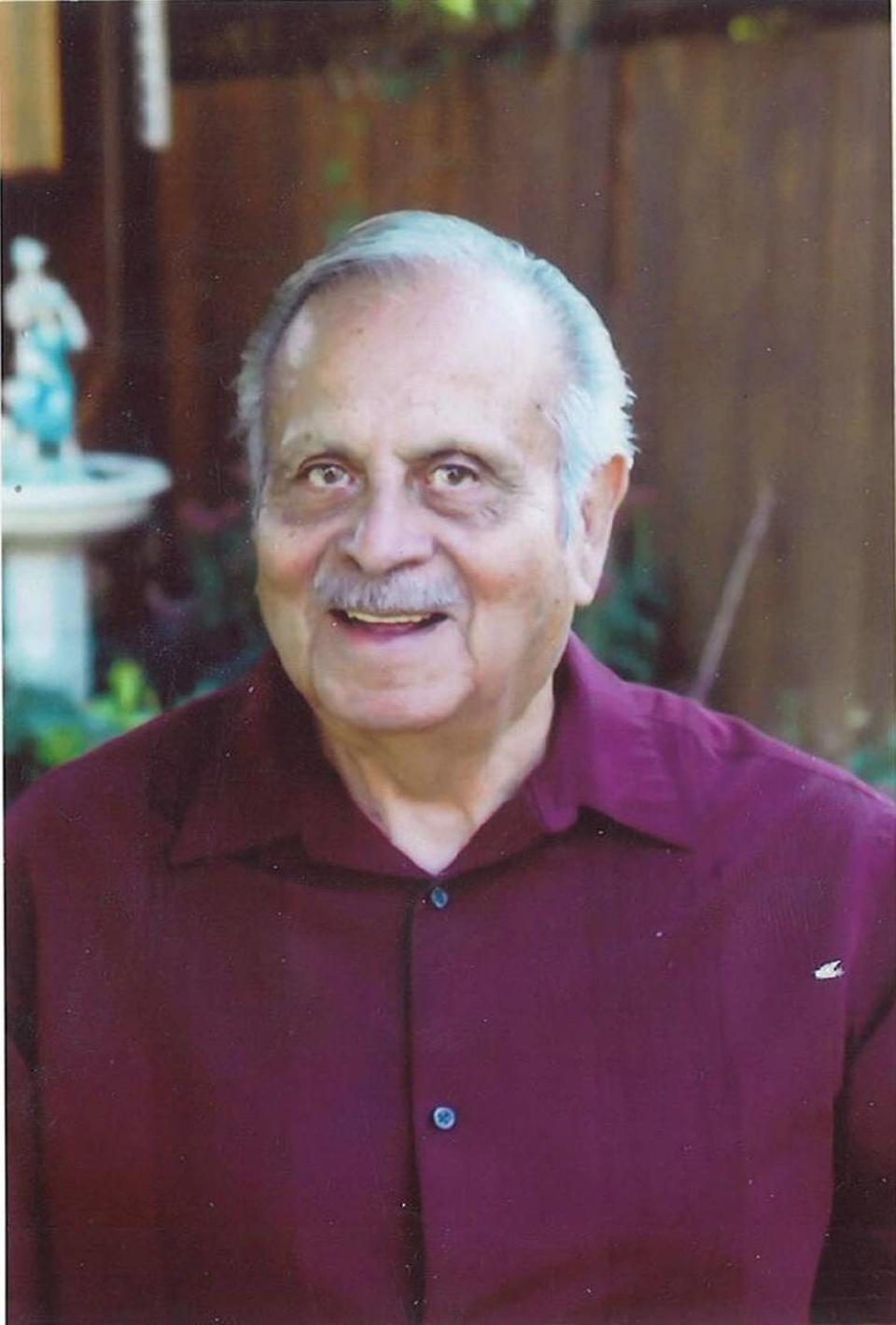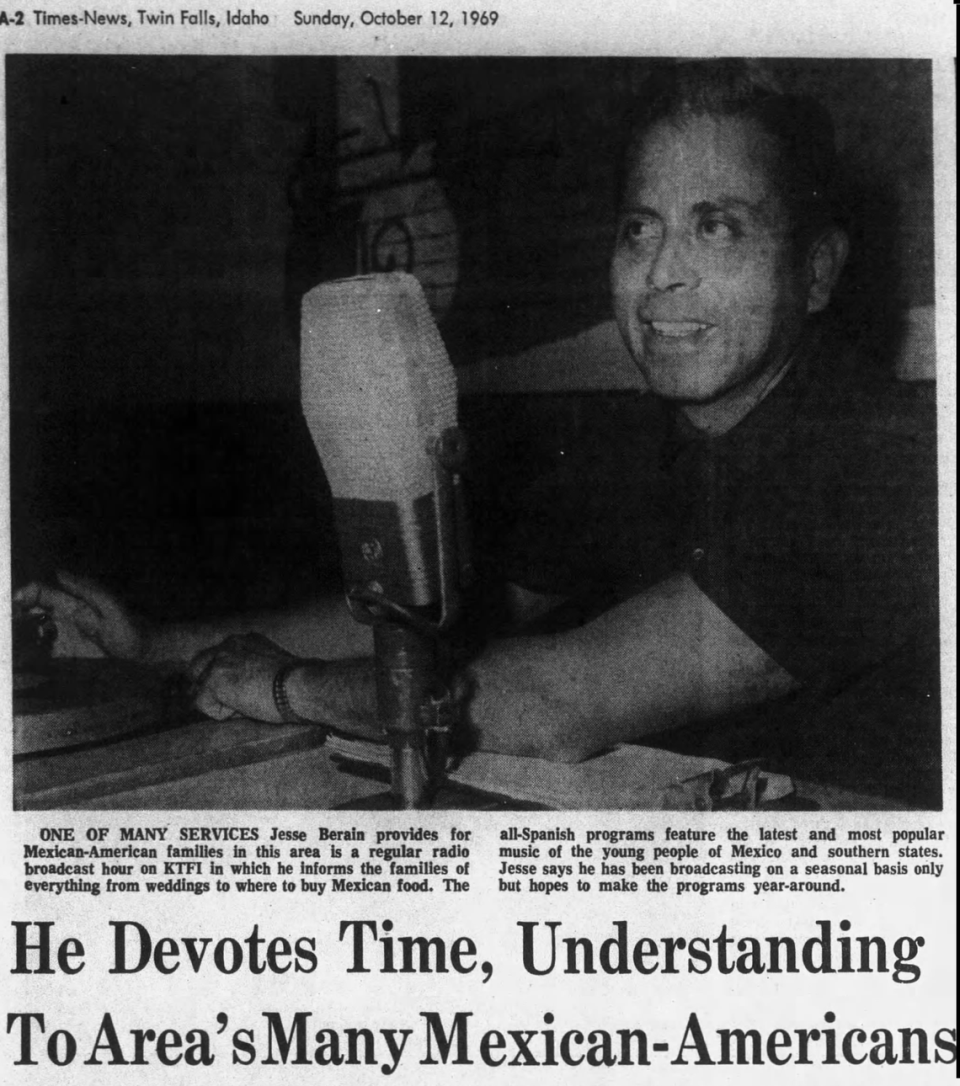Revered Idaho Latino dies a few weeks after his wife. ‘They served until the very end’
Two pillars of Idaho’s Latino community — one a trailblazing former state lawmaker — have died.
Jesse Sanchez Berain, one of the first Hispanic Idahoans elected to the Legislature and the first director of the Idaho Human Rights Commission, died Saturday in a Meridian assisted living facility at the age of 92.
His wife, Maria Andrea Berain, died just weeks before him on March 21, at the age of 87. Both contracted COVID-19 around Thanksgiving, according to his son, Manuel Berain. While Jesse experienced only mild symptoms, Maria struggled to fully recover. She succumbed to pneumonia in March, while Jesse died from congestive heart failure Saturday.
It seems like every Latino in Idaho has a story about Jesse and Maria Berain, whose long history of service focused on Hispanics, seniors and migrant farmworking communities and drew numerous accolades. The Berains supported the creation of the Hispanic Cultural Center in Nampa, founded the Hispanic Seniors of Idaho and mentored countless Hispanic and Latino college students in the Treasure Valley. Maria Berain, in particular, was known in the community for feeding and hosting Idaho students in their home.
When Idaho Gov. Brad Little recently offered Idaho as a site for a future national monument recognizing American heroes, Jesse Berain was on the list of Idahoans he suggested the Department of the Interior could honor. In 1989, former President George H.W. Bush honored Berain as No. 94 of his “Thousand Points of Light” for his service to the community.
“Jesse and Maria Andrea opened their home to many, many college students and mentored many of us over the years,” Boise City Council Pro Tem Lisa Sanchez wrote in a Saturday Facebook post. “They were true community leaders who gave us all that they could for as long as they could. They are leaving a huge hole in our community and in our hearts. They deserve to rest together after all they’ve done for us.”
Jesse Berain was born in 1928 in San Antonio, Texas, and came to Idaho in 1954 as a migrant farmworker. He was orphaned as a teenager, after his parents died young due to a “lifetime of exposure to pesticides,” an August 25, 1995, edition of the Twin Falls Times-News explained. He served in the military and was deployed to the Korean War.
“During particularly fierce fighting in the Korean War, Berain’s fellow soldiers were dying all around him,” a reporter wrote in the Times-News in 1995. “Berain vowed that if he made it home, he would devote his life to helping his people.”
Berain would often recount what it was like to return from the war to find “No Mexicans Allowed” signs in Magic Valley businesses. He told the Times-News he took a page out of Martin Luther King Jr.’s book when he participated in sit-ins until the signs came down. In another newspaper account decades after the event, he said he was even arrested for some of the demonstrations.
“He would go to bars and demand service, and he would get arrested for disturbing the peace,” his son Manuel Berain told the Idaho Statesman. “When he went to court, he would wear his uniform.”

While living in the Magic Valley, one of Berain’s many jobs was as a host for one of the first Spanish radio stations in the region. Numerous articles in the South Idaho Press and Times-News recount how he used his position to help the Hispanic community, often serving as an interpreter for local Latinos seeking medical attention or legal help.
An ally and friend of former Idaho Gov. Phil Batt, Berain moved to the Boise area to serve on the Idaho Human Rights Commission in 1969, and eventually became the first director of the commission. He also was an early Idaho official in the U.S. Department of Housing and Urban Development, overseeing housing discrimination claims in Southern Idaho in the 1970s. He also worked for the Bureau of Land Management.
Berain, a Republican, was elected to represent the Boise Bench in the Idaho House of Representatives in 1992. During his second term, Batt appointed Berain to head the Idaho Office on Aging, where he served until his resignation in 1996. Throughout his career, he championed the rights of Hispanics in Idaho and often defended the community against stereotypes. Berain fought to end the agriculture industry’s decades-long exemption from Idaho worker’s compensation law during his tenure in the Legislature, although a bill granting those worker compensation rights to Idaho farmworkers didn’t pass until after he left. He urged Latinos in the state to pursue higher education and political participation.
“I don’t care if you’re a Democrat or a Republican,” the Times-News quoted him saying just after his election to the Legislature in November 1992. “What I am asking you to do is get involved in the political process.”

Jesse and Maria Berain are featured in an exhibit at the Idaho State Museum detailing their devotion to the Hispanic community and all Idahoans.
“Many, many thanks to this beautiful pair of souls,” the Hispanic Cultural Center staff posted on Facebook on Sunday. “Together they served until the very end.”

